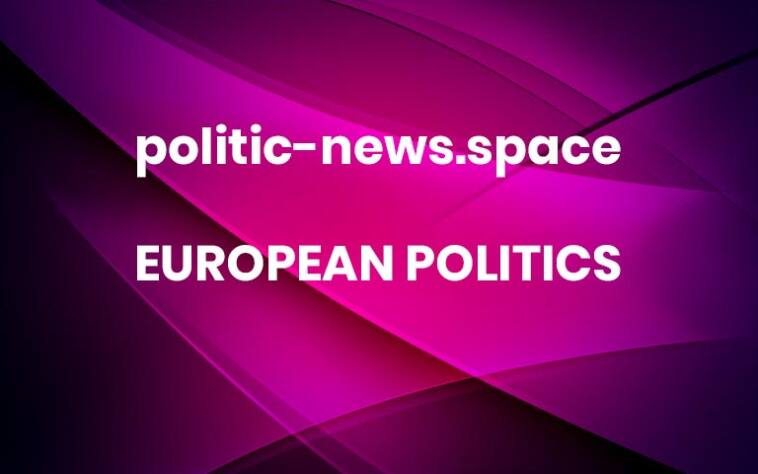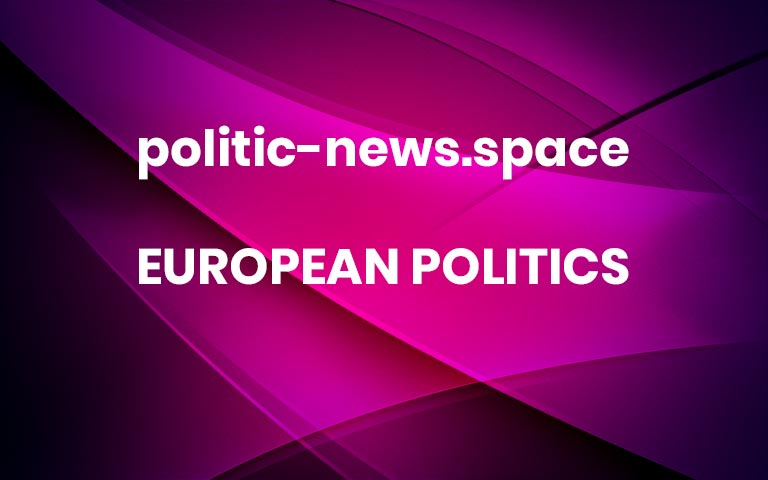How pro-Europe, pro-US Poland offers the EU a model for how to handle Trump
The European Union will have to strike a deal with US President Donald Trump on tariffs, NATO, and the stationing of US troops in EU countries. A trade war with the US will further weaken the already modest growth prospects in EU countries. Europe also still lacks a clear plan for how to defend itself if the US were to withdraw from its security system. Turning NATO into a more “Europeanized” alliance will require the development of a homegrown European military-industrial complex, and these things take time.
A weekly e-mail in English featuring expertise from scholars and researchers. It provides an introduction to the diversity of research coming out of the continent and considers some of the key issues facing European countries. Get the newsletter!
More broadly, Trump openly challenges the postwar international order – an order shaped jointly by the US and Europe. He disregards international trade rules, sees no purpose in most international organizations, and his calls to take over or annex the Panama Canal, Greenland and Canada violate the principles of self-determination and respect for international agreements. The EU can’t stop him, but it must choose: focus energy on resisting the erosion of international law and diplomacy or implement a pragmatic strategy of damage control. The latter demands leverage – bargaining chips – and sustained dialogue with Washington, however strained the politics.
This kind of strategic exercise is something Poland has been quietly mastering for years. It recently signed an agreement with a US firm to build its first nuclear power plant, and the Pentagon has approved the sale of state-of-the-art AIM-120D3 air-to-air missiles to Warsaw.
Just 35 years ago, Poland was a struggling, post-communist state plagued by corruption, lacking democratic traditions and having no experience in a market economy. Today, it is projected to have the fastest-growing European economy in the Organisation for Economic and Co-operative Development (OECD) in 2025. Its political institutions are far from flawless, but they have proven resilient. The key to Poland’s progress has been its ability to skilfully navigate the transatlantic space – strengthening military resilience through its ties with the United States, while also bolstering its economy with support from European Union cohesion funds.
Vito Corleone is wounded and furious
Poland has long been seen in Europe as the eager Atlanticist – sometimes as naive, sometimes as reckless. In 2003, when the continent was deeply divided over the Iraq War, Poland defied European opinion and sent troops to contribute to the US-led invasion. European leaders accused Warsaw of acting as Washington’s Trojan horse in European public debate. French president Jacques Chirac even described Poland’s stance as “infantile” and “dangerous”, famously declaring that Central and Eastern European countries had “missed a good opportunity to shut up”.
However, at the start of the 21st century, Warsaw was focused on strengthening its security and international standing. It got what it wanted, even at the cost of lost lives, a tarnished image, and bitter disappointments, as the expected lucrative contracts for Polish companies to participate in the reconstruction of Iraq never materialized. For the first time since World War II, a Polish contingent gained real combat experience. It became obvious that the army was in urgent need of modernization, and that modernization later occurred. It gives me no pleasure that Poland participated in an illegal war. But as an analyst, I can’t ignore the political and military benefits that followed.
In The Godfather Doctrine: A Foreign Policy Parable, published in 2009, political analysts John C. Hulsman and A. Wess Mitchell likened Poland to Enzo the baker, a character who is loyal and steady, standing guard for the Corleone family in the seminal 1972 film. In their allegory, the US is the wounded Don Vito Corleone, struggling to retain influence, while his sons scramble to save the family’s power.
While pop culture analogies have their limits, they often offer sharp insights. Western European countries now face a defining question: what kind of game do they want to play as their long-standing ally appears to spiral inward? Should they seize this moment to engage in confrontation – like rival mafia families in The Godfather trilogy – or secure what resources they can from a fading superpower to shore up their own vulnerabilities?
Two loyalties, one strategy
The reality is that Polish society is as pro-European as it is pro-American. It is also the case that the dual allegiance lost credibility when the populist Law and Justice party, in power from 2015 to 2023, adopted a combative stance toward Brussels and Berlin, isolating Poland diplomatically and weakening its position as a trustworthy European partner.
The European Commission accused the Law and Justice government of breaching EU treaty law on multiple fronts. Poland faced infringement procedures over its violations of environmental standards, its refusal to accept refugees under the bloc’s relocation mechanism, and its reforms of the common courts. What sparked outrage across Europe, and within Poland itself, was the dismantling of an already conservative abortion law, coupled with a brutal hate campaign targeting the LGBTQ+ community.
Yet even after years in power, Law and Justice failed to shift public opinion about being part of the EU: in 2022, a survey by the Public Opinion Research Centre (CBOS) showed that 92% of Poles expressed support for membership – the highest level recorded since 1994. Since joining the bloc in 2004, EU-funded investments have become permanent features of Poland’s landscape. They include new highways, restored historical landmarks, the Warsaw metro, the port of Szczecin, and widespread access to high-speed Internet. In late 2023, a democratic coalition won the national election, and former European Council president Donald Tusk returned to power for a third term as prime minister after previously serving in the role from 2007 to 2014.
Today, there are few illusions in Warsaw about Donald Trump’s negative impact on transatlantic relations: after his announcement of new tariffs on April 2, Tusk called them “a severe and unpleasant blow” coming “from our closest ally”. Nonetheless, Tusk has put forward a vision that appears to align with the US president’s expectations of Europe taking more responsibility for its own security. The potential missile deal with Washington is part of his strategy.
‘Secure Europe’
“Secure Europe” is the official theme of Poland’s current presidency of the Council of the European Union – unsurprising for a country whose historical memory teaches that without security, nothing else is possible. Situated between Germany and Russia, Poland has a long history of struggling against more powerful conquerors, often finding itself too weak to survive. As a result, it was absent from the map of Europe for over 100 years, divided between Prussia, Russia and the Austro-Hungarian empire. When it regained its statehood after the first world war, it began the difficult task of building a multiethnic, democratic society, but the second world war soon followed. Lacking powerful allies after the war, Poland saw German occupation replaced by Soviet domination, lasting almost half a century.
That’s why Polish troops fought in the NATO-led ISAF mission in Afghanistan and in the US-led invasion of Iraq, earning operational credibility and proving their reliability within the transatlantic alliance. Even before Trump’s first term, Poland was one of the few NATO countries meeting its 2% defence spending target. Today, it spends more than 4% – a higher share of GDP than even the United States. In 2014, when Russia illegally annexed Crimea, Poland had the ninth-largest armed forces in NATO. Today, it ranks third, behind only the US and Turkey, with over 200,000 personnel.
What Poles have long understood – and what much of Europe was slow to acknowledge – is that when Russia operates in imperial mode, it responds only to force. For years, Poland sought to act as Europe’s interpreter of the Russian psyche, but few were willing to listen. Preoccupied with lucrative energy deals and diplomatic overtures, German and French leaders dismissed Polish warnings as paranoia or Russophobia, brushing aside clear red flags.
Could Poland’s long-honed strategy of balancing loyalties across the Atlantic offer a new model for European foreign policy? In a world where old alliances are being tested and new rules are being written, its rationale might point to the pragmatic path forward. For Poles, the EU is more than just a political project – it was the fulfilment of a long-held dream of breaking free from the historical burden of constant threat and dependence. If Poland has been right about Russia all along, then perhaps it’s time to consider whether it might have something to tell us about the US, too. More



